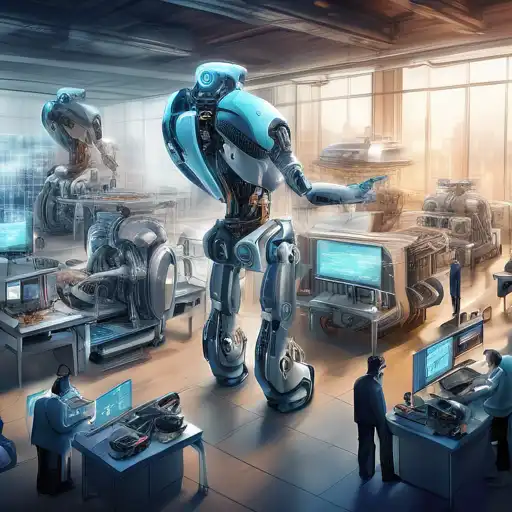The Revolutionary Impact of Artificial Intelligence Across Global Sectors
Artificial Intelligence (AI) is no longer a futuristic concept but a present reality that is reshaping industries worldwide. From healthcare to finance, and manufacturing to education, AI's transformative power is undeniable. This article explores how AI is revolutionizing various sectors, driving efficiency, innovation, and growth.
Healthcare: A New Era of Diagnosis and Treatment
In the healthcare sector, AI is making significant strides in improving patient outcomes. Through advanced algorithms and machine learning, AI can analyze complex medical data at unprecedented speeds, leading to faster and more accurate diagnoses. For instance, AI-powered tools are now capable of detecting early signs of diseases such as cancer, often with greater accuracy than human doctors. Moreover, AI is streamlining administrative processes, reducing wait times, and personalizing patient care plans.
Finance: Enhancing Security and Customer Experience
The finance industry is leveraging AI to combat fraud, automate trading, and enhance customer service. AI systems can monitor transactions in real-time, identifying suspicious activities that may indicate fraud. Additionally, chatbots and virtual assistants, powered by AI, are providing customers with 24/7 support, answering queries, and offering personalized financial advice. This not only improves customer satisfaction but also reduces operational costs for financial institutions.
Manufacturing: Boosting Efficiency and Reducing Costs
AI is transforming the manufacturing sector by optimizing production processes, predicting maintenance needs, and improving supply chain management. Smart factories equipped with AI technologies can predict equipment failures before they occur, minimizing downtime and saving costs. Furthermore, AI-driven robots are performing repetitive tasks with precision, allowing human workers to focus on more complex and creative aspects of production.
Education: Personalizing Learning Experiences
In education, AI is personalizing learning experiences to meet the unique needs of each student. Adaptive learning platforms use AI to analyze students' performance and tailor educational content accordingly. This ensures that learners receive the right level of challenge and support, enhancing their engagement and outcomes. Additionally, AI is automating administrative tasks for educators, giving them more time to focus on teaching and mentoring.
Conclusion: The Future is AI
The impact of AI across industries is profound and far-reaching. As technology continues to evolve, the potential for AI to drive innovation and efficiency is limitless. Businesses and organizations that embrace AI will undoubtedly lead the way in their respective sectors, shaping a future where technology and human ingenuity work hand in hand for the betterment of society.
For more insights into how technology is transforming industries, check out our articles on digital transformation and the future of work.
